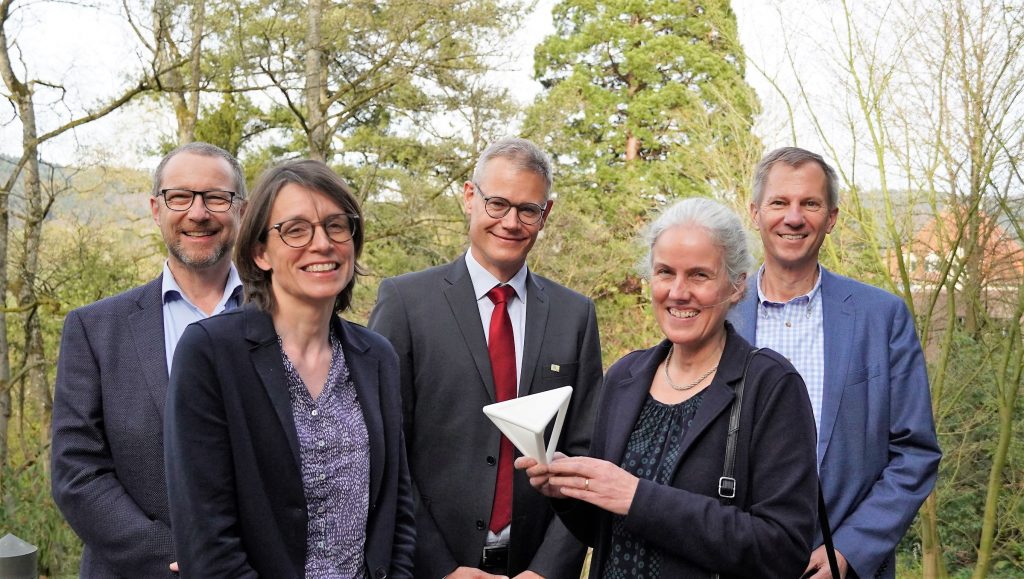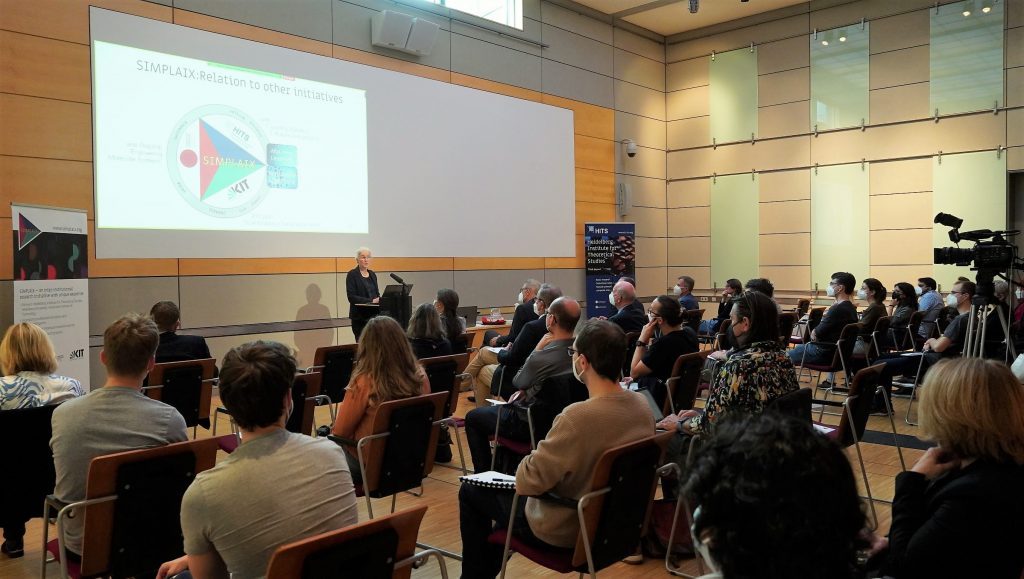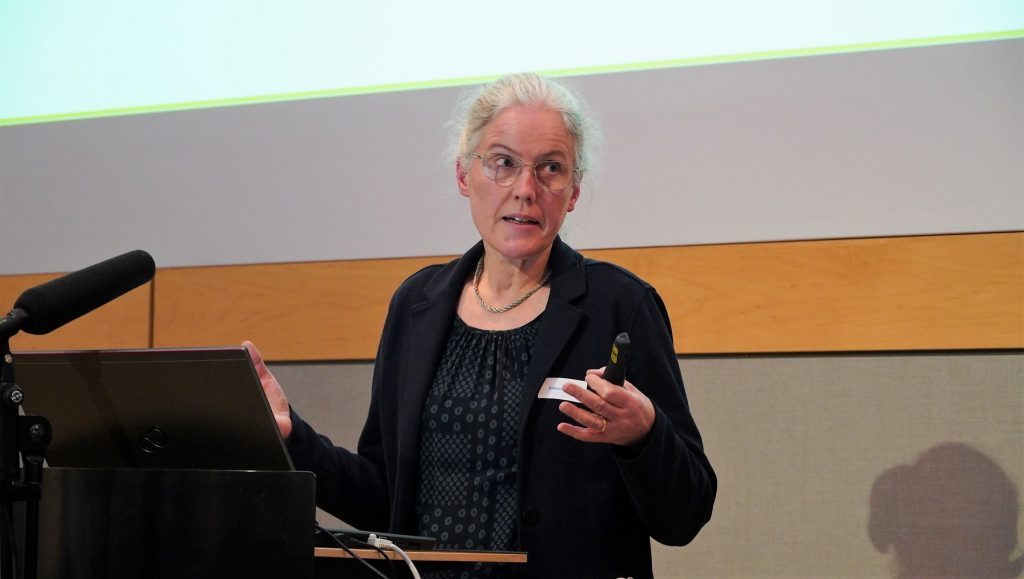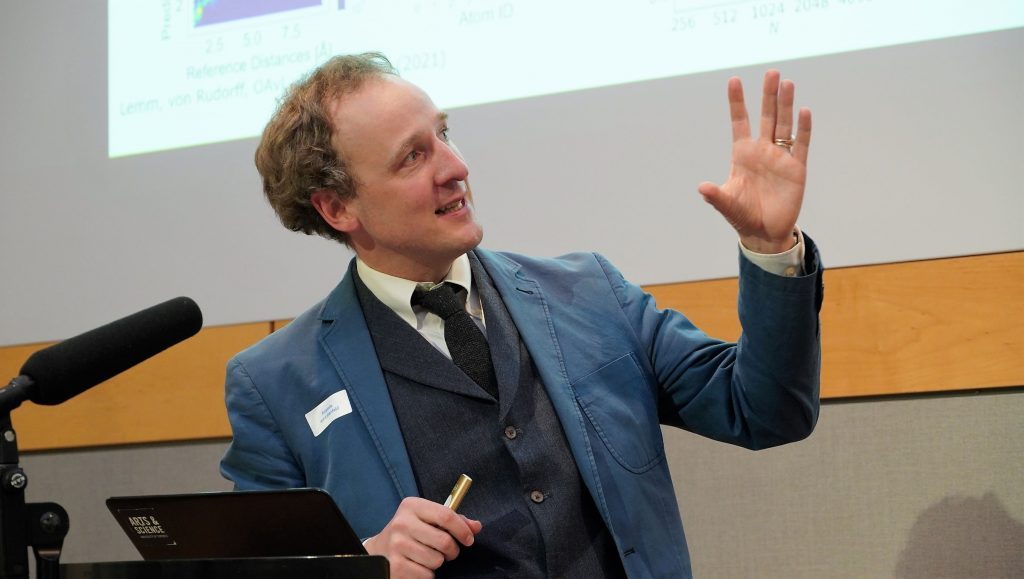“The magic triangle” advances molecular research with machine learning and simulations
The “SIMPLAIX” collaboration started with an inaugural symposium in Heidelberg. Researchers from HITS, Heidelberg University, and Karlsruhe Institute of Technology (KIT) address challenges in the simulation of biomolecules and molecular materials by pooling their expertise in multiscale computer simulation and machine learning. The new collaboration is enabled by the Klaus Tschira Foundation.
“SIMPLAIX” has officially started: In this new collaboration, researchers from the Heidelberg Institute for Theoretical Studies (HITS), Heidelberg University, and Karlsruhe Institute of Technology (KIT) pool their expertise in machine learning to address challenges in the computer simulation of biomolecules and molecular materials. The collaboration is enabled by the Klaus Tschira Foundation.
On 12 April 2022, the SIMPLAIX inaugural symposium took place at the Studio Villa Bosch in Heidelberg, with project members and representatives of all three institutions participating. In this hybrid meeting, 45 participants attended the event in person, another 30 people joined via videoconference.
Finding new approaches to molecular design
“SIMPLAIX will enable us to collaborate on interdisciplinary, interinstitutional research projects”, said SIMPLAIX spokesperson Rebecca Wade (HITS), who chaired the event and gave an introduction to the structural and scientific aspects of the collaboration. “By combining machine learning and simulation approaches, we expect to gain novel insights into scale-bridging molecular phenomena in complex biomolecules and molecular materials that will ultimately lead to new approaches to molecular design.”
Welcome addresses by Carsten Könneker (Managing Director, Klaus Tschira Foundation), Frauke Gräter (Scientific Director, HITS and SIMPLAIX co-spokesperson), Oliver Kraft (Vice President for Research, Karlsruhe Institute of Technology), and Matthias Weidemüller (Vice-Rector for Innovation and Transfer, Heidelberg University) emphasized the importance and the impact of this initiative.
“SIMPLAIX fits perfectly with the aims of the Klaus Tschira Foundation”, Carsten Könneker remarked, “since we firstly facilitate top research, secondly, we support young researchers, and thirdly, we foster interdisciplinarity. SIMPLAIX combines all three. So we are very much looking forward to all the synergies this magic triangle offers.“
Keynotes from the scientific advisory board
Finally, two members of the newly established SIMPLAIX international scientific advisory board – both experts in machine learning approaches for studying molecular systems – gave scientific talks: Anatole von Lilienfeld (University of Vienna) talked about “Quantum Machine Learning“, and Jörg Behler (University of Göttingen) explained “High-dimensional neural network potentials for simulations of complex systems”.
During the course of the SIMPLAIX initiative, eight young researchers will be recruited for the projects. See more about the job openings here: https://www.h-its.org/research/simplaix/simplaix-jobs/

The introduction by Rebecca Wade [and Anatole von Lilienfeld´s talk are available on the HITS YouTube channel https://www.youtube.com/user/TheHITSters
Rebecca Wade: Introducing SIMPLAIX https://youtu.be/VxytBNHLH8k
Anatole von Lilienfeld: Quantum Machine Learning https://youtu.be/f0HWThr956Y
More info: www.simplaix.org
Scientific contact:
Prof. Dr. Rebecca Wade
Heidelberg Institute for Theoretical Studies (HITS)
Press contact:
Dr. Peter Saueressig
Head of Communications
Heidelberg Institute for Theoretical Studies (HITS)
About HITS
HITS, the Heidelberg Institute for Theoretical Studies, was established in 2010 by physicist and SAP co-founder Klaus Tschira (1940-2015) and the Klaus Tschira Foundation as a private, non-profit research institute. HITS conducts basic research in the natural, mathematical, and computer sciences. Major research directions include complex simulations across scales, making sense of data, and enabling science via computational research. Application areas range from molecular biology to astrophysics. An essential characteristic of the Institute is interdisciplinarity, implemented in numerous cross-group and cross-disciplinary projects. The base funding of HITS is provided by the Klaus Tschira Foundation.


